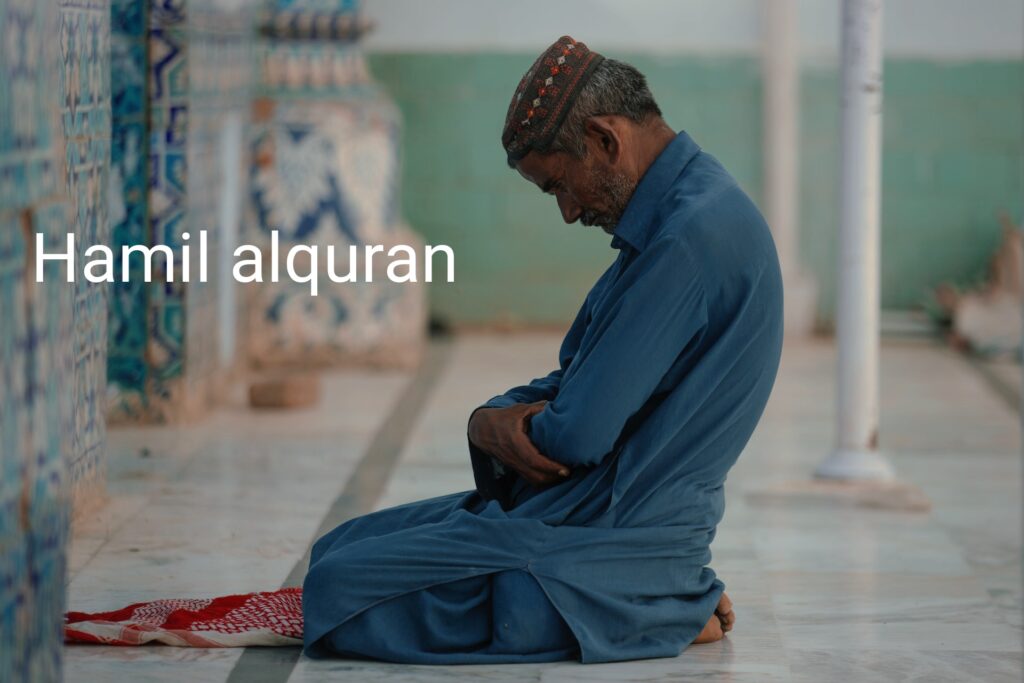Salah prayer is defined in language as supplication or request, but in Sharia, it is an act of worship that includes specific actions, and the Muslim performs it five times a day, and it is an obligation on every Muslim, as well as one of the pillars of the Islamic religion.
Also, salah in Islam has conditions that must be met in order for it to be completed in the fullest way and to be accepted.
In the following, we will learn about these conditions in detail, as well as we will delve deeper into the provisions of prayer in Islam and what is related to it.

What is The Meaning of Salah in Islam?
Table of Contents
ToggleSalah in Islam is an essential pillar of the Islamic religion, i.e. faith or Islam cannot be achieved without it.
In religious terminology, salah is defined as an act of worship to Allah Almighty, consisting of specific and well-known words and actions that begin with Takbir (saying Allahu Akbar) and end with Taslim (saying As-salaam alaikum wa rahmatullah).
The “words” referred to in the definition include recitation, Takbir, Tasbeeh, and others, while the “actions” are standing, bowing, prostrating, and others.
The Significance of Islamic Prayer Salah
Islamic salah has great importance in the life of a believer. It is the hallmark of an obedient Muslim and the means of connection for a devout believer.
Only a true believer is steadfast in performing it while a lazy or hypocritical person neglects it. There is a difference of opinion among scholars regarding the ruling on one who abandons prayer.
But they unanimously agree that one who neglects it out of ingratitude has committed an act of disbelief, and one who neglects it out of laziness and neglect has committed a sinful act.
The one who abandons prayer has no guarantee of a good ending and exposes themselves to loss unless they repent and feel remorse.
Due to the immense importance of prayer, it is not exempted from a sick person even if they are allowed to pray according to their situation. Even a fighter in a war is not excused from performing prayer while in front of the enemy.

Who Must Perform Salah Prayer?
Prayer in Islam is obligatory for every Muslim, male or female, who has reached the age of puberty, is of sound mind, and is in a state of purity. It is not obligatory for a non-believer to pray, nor is it valid for them to do so, but they will be held accountable for their negligence in the Hereafter.
How Do Muslims Pray? Islam Prayer Steps In Details
The prayer must be performed in accordance with the way the Prophet prayed because the Muslim is commanded to pray as the Prophet – peace be upon him – prayed, and in what follows we will explain how to perform the prayer as the Messenger did:
- He (PBUH) would purify himself when he intended to pray, cover his awrah, face the Qiblah, and focus his heart sincerely on Allah with humility.
- Then he would say Allahu Akbar (Allah is the greatest), raising his hands to the level of his shoulders.
- Then he would start reciting Al-Fatihah in every rak’ah, and whatever he could easily recite from the Qur’an in the first two rak’ahs of the prayer.
- Then he would say Allahu Akbar, bowing down calmly in his bowing position, bending as much as his hands could touch his knees, and glorifying Allah (Subhanahu Wa Ta’ala) in his bowing by saying: “Subhana Rabbiyal Aladheem” (Glory be to my Lord, the Most Great).
- Then he would raise from the bowing position and say: “Sami’Allahu liman Hamidah, Rabbana wa lakal-hamd” (Allah hears those who praise Him, Our Lord, all praise is Yours).
- Then he would say Allahu Akbar and prostrate, saying in his prostration: “Subhana Rabbiyal A’la” (Glory be to my Lord, the Most High).
- Then he would say Allahu Akbar, lifting his head from the prostration until he sat on his left leg and his right foot was erect, pointing his toes towards the Qiblah and saying: “Rabbi-ghfirli, Rabbi-ghfirli” (My Lord forgive me, My Lord forgive me).
- Then he would say Allahu Akbar and prostrate for the second time like the first time. Then he would say Allahu Akbar and sit on his left leg.
- Then he would stand up for the second rak’ah, supporting himself with his hands on the ground, and do the same as he did in the first rak’ah.
- Then he would sit for the first tashahhud (testimony of faith), and recite the tashahhud followed by sending blessings upon the Prophet if the prayer was a two-rak’ah prayer. But if it was a three or four-rak’ah prayer, the worshipper should recite the tashahhud alone after rising from the second prostration, and in the final rak’ah.
- He should recite the tashahhud and send blessings upon the Prophet, then he should end the prayer by turning his face to the right and saying: “Assalamu alaikum wa rahmatullah” (Peace and mercy of Allah be upon you) and then to the left repeating the same words.
- He should do in the third and fourth rak’ahs what he did in the first and second rak’ahs, and in them he should recite only Al-Fatihah, and his last sitting position should be with his right foot erect and his left foot flat on the ground.
Where can Salah be Performed?
Allah has mandated salah in mosques, but it may not always be feasible for the student in those countries, whether on campus, on the road, or in the market.
However, there are other rules and regulations that can be inferred from the texts that the student should be aware of when choosing a place to pray, as much as possible:
- The ground should be clean, and purity is the default, with impurity being incidental. If you do not know of any impurities, then assume that the ground is pure.
- There should be nothing that distracts the worshipper, such as images, loud noises, or music.
- The place of prayer should not harm people, such as praying in the middle of roads or passages that prohibit standing and cause inconvenience and congestion for people.
- The place should not expose worship to ridicule and mockery, such as praying among drunken or fanatical people, etc. Allah has forbidden insulting the idols of the disbelievers so that they are not exposed to blasphemy without knowledge.
- The place should not be conducive to disobeying Allah, such as nightclubs and other similar places.

In What Language Is Salah Recited?
Reading the Quran in any language other than Arabic is prohibited according to the majority of scholars of the Maliki, Shafi’i, and Hanbali schools, regardless of whether one is proficient in Arabic or not.
Ibn Qudamah stated in Al-Mughni that Quran recitation in a non-Arabic language or substituting its words with Arabic words is not acceptable, whether the recitation is done perfectly in Arabic or not.
This view is also held by Shafi’i, Abu Yusuf, and Muhammad. However, Abu Hanifa believed that reciting the Qur’an in another language is permissible. Some of his followers argue that it is only permissible for those who are not proficient in Arabic.
These scholars insist that every Muslim who is able must learn to recite Al-Fatiha, even if it means doing so during travel. If one is unable to learn it, opinions differ among scholars regarding whether they must substitute it with another recitation.
Some hold that they must recite what they can proficiently, while others allow reciting a translated version of Al-Fatiha. Abu Yusuf and Muhammad, the companions of Abu Hanifa, believe that it is only permissible for those who are not proficient in Arabic to recite the Qur’an in another language.
The Benefits of Salah
There are numerous benefits to salah in Islam that have a positive impact on the physical and mental health of Muslims.
Physical and Mental Health Benefits of Salah
I wanted to mention some of the benefits that we should realize to feel the sweetness and pleasure of prayer and worship. Here are some of these benefits briefly:
- Salah is a mental, spiritual, and physical exercise, and maintaining it means maintaining a healthy body and a calm and stable psychological state. Therefore, the most important characteristic of the pious after faith is prayer.
- It can help decrease lower back and foot pain, you should pray and maintain it. Prayer is not just an act of worship to get closer to Allah to be successful in the afterlife, but it is also successful in this world, and it is better for the believer.
- Prayer in Islam is a light and useful exercise for muscles and treats physical fatigue, weakness, and weakness that affect many people.
- It is the tranquility for modern problems if accompanied by patience, as prayer and patience are effective for many psychological disorders.
- In bowing and prostrating, it can help blood vessels and improve blood circulation and the heart’s performance. The amazing thing is that these miraculous effects only appear with the maintenance of prayers, and hence we may realize why Allah commanded us to maintain prayer!
- The movements of salah in Islam are diverse and comprehensive, helping to circulate blood well and deliver it to all parts of the body, especially the brain. The most important thing about prayer is that it is a regular and continuous action that continues until the believer’s last moment of life. Prayer can help to avoid fear, psychological disorders, and anxiety.
- Islamic prayer gives the believer amazing energy due to their connection with their Creator, and this energy increases with humility. Therefore, Allah commanded us to be humble during prayer.
- Finally, salah is a light exercise that does not harm the body like violent exercise that requires fast running, muscle stress, and overloading beyond its capacity. Therefore, prayer is a relief for humans.

Spiritual Benefits of Salah
In addition to the physical and psychological benefits of salah in Islam, there are also spiritual benefits, including the following:
- The feeling of peace and trying to get closer to Allah.
- Increasing a person’s ability to tolerate.
- Peace and tolerance in communicating with others.
- Increasing feelings of happiness and joy.
- The softness of the heart and enhancing empathy.
- Increasing feelings of fear and love of Allah in your heart.
- Getting rid of stress and anxiety.
- Increasing optimism and positive outlook.
- Prayer helps the body get rid of laziness and lethargy.
- Prayer is a spiritual, physical, and mental exercise that helps to feel tranquility and soothe the souls.

Social Benefits of Salah
Besides being a religious obligation, Salah also has several social benefits that can positively impact individuals and communities. Some of these benefits include:
- Promoting unity and brotherhood: Salah is performed in congregation, and Muslims stand shoulder to shoulder regardless of their social status or ethnicity. This fosters a sense of unity and brotherhood among Muslims and helps to break down social barriers and promote social cohesion.
- Fostering discipline and self-control: prayer requires Muslims to perform the five daily prayers at specific times throughout the day. This regular practice helps to instill discipline and self-control, which can have positive effects in other areas of life as well.
- Encouraging humility and modesty: Salah in Islam involves bowing and prostrating before Allah, which helps to promote humility and modesty in individuals. This can have positive effects on a person’s character and behavior, making them more respectful and humble towards others.
- Providing a sense of purpose and meaning: Islamic salah is a spiritual practice that helps Muslims to connect with Allah and to reflect on the purpose and meaning of life. This can provide individuals with a sense of purpose and direction and can help to alleviate feelings of emptiness or meaninglessness.
- Promoting good deeds and moral values: prayer is often accompanied by other good deeds and moral values such as giving to charity, being kind to others, and avoiding harmful behavior.
This helps to promote positive values and behaviors in individuals, which can have positive effects on society as a whole.

Conclusion
In conclusion, prayer is one of the pillars of Islam Which are Shahada, Salah, Zakat, Ramadan Fasting, and Hajj Pilgrimage, without which complete faith cannot be achieved, and prayer has a special form that we inherited through the Messenger, may Allah bless him and grant him peace.
In addition to that, the scholars differed regarding the ruling on praying in a language other than Arabic, as some of them tended to the permissibility of that.
And others tended to the fact that it is not permissible to pray in a language other than Arabic, and some of them permitted speaking in a language other than Arabic in some places.
